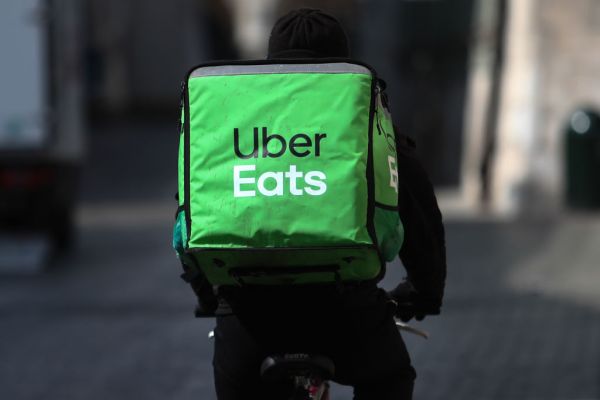

It’s tempting Let’s say the ride-hailing model is on the path of a moribund business, particularly in the wake of Lyft’s well-publicized layoffs and turnover of executives. But Uber’s first-quarter earnings results partially dispel those concerns.
Not only has Uber beat analyst expectations across the board, but it’s also proving that its financial foundation is getting more and more solid: Its multi-segment business model is doing well now that its food delivery business, which has supported transportation efforts during the pandemic, is handing back the baton of growth to the company’s parent venture. .
The exchange explores startups, markets and money.
Read it every morning on TechCrunch+ or catch The Exchange newsletter every Saturday.
In the first quarter, Uber’s revenue of $8.82 billion exceeded analyst expectations by about $100 million, which is significant. The company’s GAAP loss was narrower than expected ($0.08 in loss per share compared to the average analyst estimate for a loss of $0.09 per share), while its adjusted earnings came in better than calculated in the street ($761 million in adjusted EBITDA compared to an estimate of $678.6 million). Shares of the company surged after the announcement, up 8.9% at $35.68.
 Against the backdrop of Lyft’s struggles and tepid growth at big tech, this morning, we dive into Uber’s results, looking at the good, the less good, and the curious. Our goal is to understand the company’s recent performance, and we’ll close with a note about the Uber profitability growth trade-off as it exists today, and what that can tell us about investor sentiment today.
Against the backdrop of Lyft’s struggles and tepid growth at big tech, this morning, we dive into Uber’s results, looking at the good, the less good, and the curious. Our goal is to understand the company’s recent performance, and we’ll close with a note about the Uber profitability growth trade-off as it exists today, and what that can tell us about investor sentiment today.
This last part is key for startups looking to raise capital, so read closely. for work!
Highlights and highlights
Uber saw its total bookings rise 19% to $31.4 billion in the first quarter from a year earlier (bookings were up 22% after adjusting for currency fluctuations, but we’re sticking with hard numbers for the rest of this post). The company’s revenue rose 29%, helped by a change in the way Uber handles its UK accounts.
Uber’s total bookings are derived from its two main businesses, ride-hailing and food delivery (more data here):
